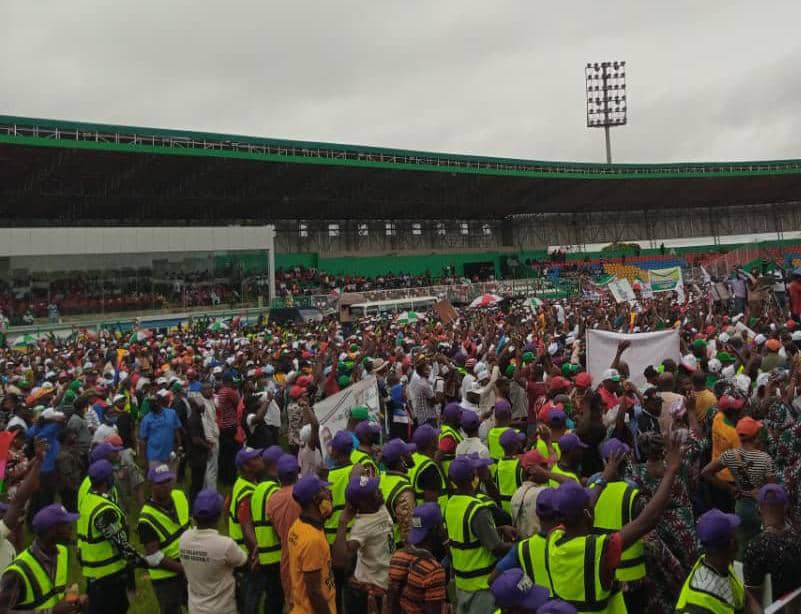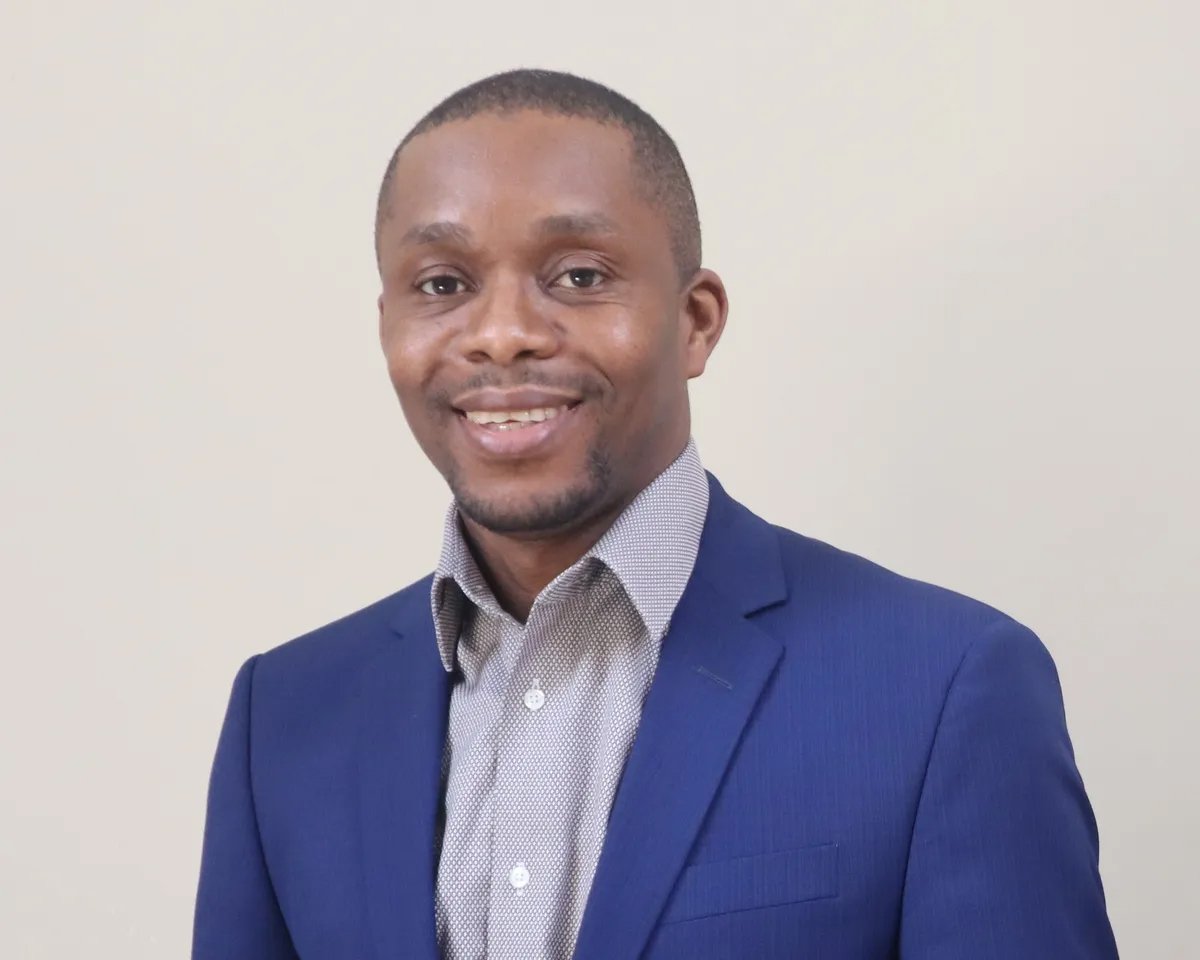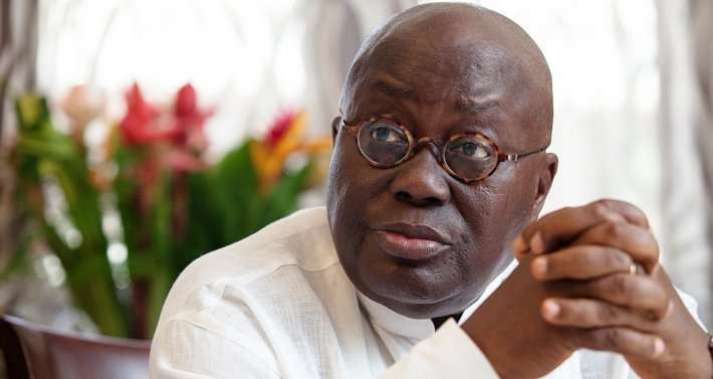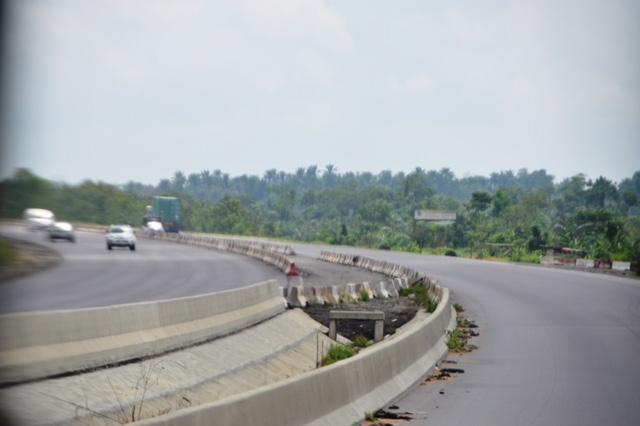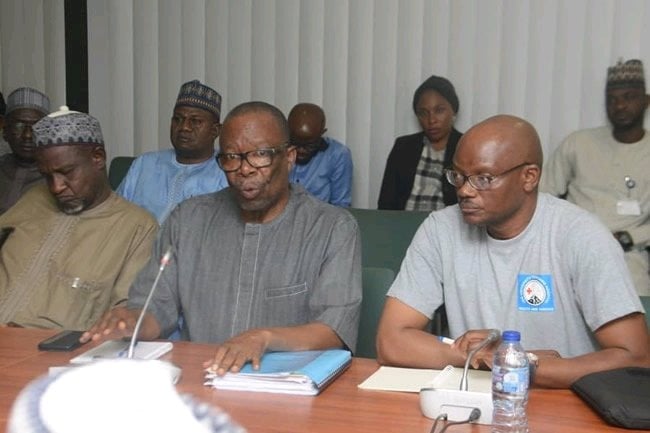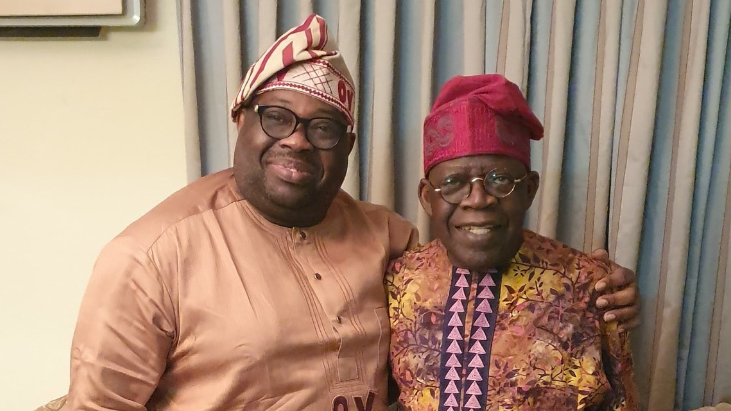“This electioneering period is the only time Nigerian politicians listen (to the masses). After this period, when they must have been elected into office, they begin to issue instructions that we must obey, whether we like it or not. So, we must endeavour to ask them questions on how they intend to manage the country’s economy so that, the current rate of unemployment will reduce, and value of the Naira against the Dollars goes up.”
This was a submission by Dr. Salihu A. Ajia, a retired but not tired academic, when he featured on a radio program, “The Perspectives”, on Sobi FM Ilorin, on Thursday morning last week.
He opined that as Nigerians inch towards electing another set of political leaders to rule (ruin, depending on what you’re feeling, and your standpoint) over the nation’s affairs, starting from May 29 next year, the socio-economic realities, most of which are direct consequences of the (non) performance of the outgoing ones, are biting hard. Inflation is galloping. Unemployment, insecurity, food scarcity are rife. The decline in the value of the country’s currency, the Naira, among other economic indices is phenomenal. Things are, generally, not what, or how, an average Nigerian wants them to, or thinks they should, be. A 50 kg bag of rice that hovered around twenty-six thousand Naira, (₦26,000), this time last year now goes for between forty-five thousand Naira (₦45,000), and fifty thousand Naira (₦50,000), depending on your location.
The one that is most tragic, as it is most dramatic, is the steady and dramatic drop in the value of the Naira. Although, it is not unexpected for an import-dependent economy like Nigeria’s, it calls for serious concern and in need of very urgent attention by those, in whose custodies we entrust our socio-economic destiny as a nation. The exchange rate is, officially, not more than four hundred and forty Naira (₦440), but it is close to nine hundred Naira (₦900) in the most active and most patronised (parallel) market, created and nurtured by the systemic corruption in our financial ecosystem, managed by the Central Bank of Nigeria (the CBN). The ripple effects of that, on the general price level, are, to put it mildly, palpably massive.
Advertisement
Another very critical issue is that, most oil-producing countries are smiling to the bank, as a result of the energy crisis in Europe, occasioned by the war between Russia and Ukraine, but Nigeria, a major oil-producing nation – number one in Africa, and number 10 in the world, is insolvent, due to a questionable fuel subsidy regime, which benefits do not trickle down to the target beneficiaries – the downtrodden, the socio-economically vulnerable Nigerians. The reason is not far-fetched. The corruption in the country’s oil and gas sector is legendary. Oil-theft is rife in the land, with complicity of the highly placed government officials – a poorly kept secret. In a country where the government is responsible and responsive, heads would have been rolling in the Ministry of Petroleum Resources, and even among the security agencies which complicity we do not need an FBI, to establish. But this is Nigeria. “Nothing dey happen”. More than half of the subsidised products are being smuggled for sale across the border, into neighbouring west African countries. The NNPC (Nigerian National Petroleum Corporation, now Nigerian National Petroleum Company Limited) is a cesspool of corruption. That tells the story of a chronically mismanaged economy, and economic opportunities.
Whether we like it or not; whether we admit it or not, food scarcity, the free fall of our currency’s value against the major international currencies, insecurity, unemployment, epileptic power supply, and failing health sector, remain some of the national problems requiring urgent attentions from whomever takes over from President Muhammadu Buhari and his co-travelers, come next year. Whether it is APC’s Asiwaju Bola Ahmed Tinubu, PDP’s Alhaji Atiku Abubakar, LP’s Peter Obi, NNPP’s Rabiu Musa Kwankwaso, AAC’s Omoyele Sowore, or SPD’s Adewole Adebayo, this is the only time they listen, and are always willing to talk to us (Nigerians), with a heavy dose of civility to boot. Even though we know that, all they will say, are platitudinous half-truths, as a part of the rituals of electioneering in a democratic setting, we must not let it pass without exploiting it. We need to hear from each and every one of them, how they intend to tackle this plethora of issues, if and, when elected into office. The candidates must be made to engage with us in a way that will make their promises undeniable, by this time in 2026. And, for the promises to remain undeniable, it must not come from their parties’ spokespersons, or their running mates. It must be in an accessible and retrievable document, like a manifesto, put down in black and white. We must then, interrogate the documents to ascertain, whether they are aware of the enormity of the challenges at hand, the dearth of resources to fix them., and how and where they would raise the needed fund, without resort to the “Kao Kudi” economic philosophy of borrowing to finance because we have a debt profile that would take generations to repay. They must be made to explain to Nigerians, how they intend going about sourcing the funds to execute the projects of addressing those problems. In the 21st century Nigeria, it is no longer enough for an aspirant or a candidate to tell the masses that, “I will do this, I will do that”. They must tell the people, where and how they will source the funds to execute whatever project they promise the people. Nigerians do not deserve another set of leaders whose stocks in trade are, blame-trading, and rehearsing of problems they were elected to solve. This is the only time within a cycle of four years that they seem to listen. That is why I advised, in one of my recent pieces, that in “2023: Nigerians must negotiate from a position of strength”.
Nigerians must not get carried away by their unnecessary war of sloganeering. Whether “Batification”, “Atikulation”, or “Obidient”, that should be none of our businesses. What should be our concern is the capacity of the candidates, rooted in their understanding and appreciation of the severity of our problems, and the political willingness to tackle them, headlong. Whether it is “Unifier”, or “Disunifier”; “Renewed Hope”, or “Renewed Lack of Hope”, “Dey Give Shishi” or “No Dey Give Shishi”, all Nigerians should be interested in is, who is capable and willing to bring about security of lives and properties; stable supply electricity; affordable prices of food stuffs; affordable and accessible health care service; job creation; improvement in the quality of education in our schools; patching the plethora of potholes on our highways and opening up of new ones; access to clean and safe water, among other things.
Advertisement
Nigerians have witnessed enough battles of slogans, glossy posters, and other aesthetic things that do not really matter, to last them two lifetimes. Nigerians, especially on social media, need to stop engaging themselves with the politicians on frivolous issues, like the colour and size of a presidential candidate’s dress – things that do not have direct bearing on their well-being. Issues that have nothing to do with prices of; diesel, PMS, cooking gas, rice, Gari, semo vita, bread, availability of essential drugs at affordable rates in our Primary Health Care centres, stable electricity, safety of lives and properties, should not be given unnecessary attention. We must stop dissipating our energies on issue without direct and positive impacts on getting rid of potholes on our roads, functional railway system, good learning environment and stable academic calendar in our tertiary institutions, among others.
The level of hunger in the land does not afford us the luxury of engaging in such frivolities as it’s being witnessed on social media at the moment. A man whose house is on fire should be seen, going about, chasing rodents. We should instead be preoccupied with setting development agenda and the tone for issue-based economic/ political debates that would elicit a response from them, on how our socio-economic problems will be tackled by whoever emerges as Buhari’s successor among them in the next general election.
Dr. Ajia’s admonition that this is the only time the politicians listen, and that, Nigerians should not fail to capitalise on, to ask them those hard questions on issues that would be used to bench-mark them at the end of their tenure, is a well-timed one.
Abubakar writes from Ilorin. He can be reached via 08051388285 or [email protected]
Advertisement
Views expressed by contributors are strictly personal and not of TheCable.
Add a comment

